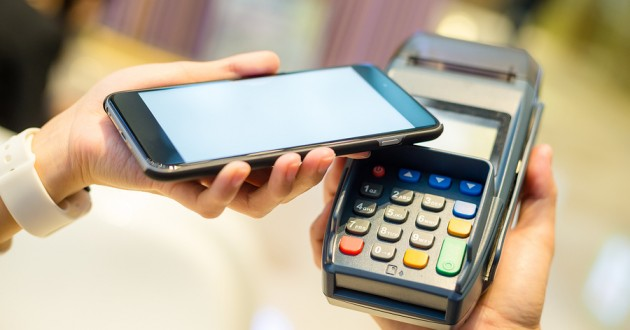From April to June, a total of 20.7 million transactions were carried out in the country through the mobile payment platforms.
Data from the National Bureau of Statistics (NBS) for quarter two put the value of these transactions at N410.5 billion.
A mobile payment is money paid for a product or service through a portable electronic device such as tablet or cell phone. Mobile payment technology can also be used to send money to friends or family members. It is also known as m-payment, mobile money transfer or mobile wallet. It is making payment digitally.
Specifically, in April, there were 5.95 million transactions valued at N125.6 billion, while in May, 7.56 million transactions earned N147.5 billion value. For June, the N137.4 billion values were from 7.12 million transactions.
The mobile payment volume of 20.7 million and value of N410.5 billion formed part of the 509,668,433 transactions valued at N32.90 trillion that were recorded in Q2 as data on Electronic Payment Channels in the Nigeria banking sector.
Further analysis showed that the mobile payment transaction volumes for the period represented 4.1 per cent of the 509,668,433 transactions.
The volumes of transactions done through mobile payment were facilitated by platforms including GTPay, Interswitch, eTransact, SimplePay, UCollect, GlobalPay, Paga, among others.
Despite these volumes of transactions the mPayment recorded, the Automated Teller Machine (ATM) transactions had the largest share. There were 217,417,961 volume of ATM transactions valued at N1.6 trillion that were recorded in Q2 2018.
Market Watchers believed that despite this growth seen on the platform, mobile payment services are still very low and the process slow in the country.
For instance, Kenya and Ghana remained far ahead of Nigeria in mobile payment usage. In 2017, Kenya and Ghana processed $45.3 billion and $35.9 billion respectively. Nigeria, according to statistics from NBS for last quarter of 2017 recorded 12 million transactions valued at N307 billion ($1 billion).
According to the report, though the value of transactions grew by 30 per cent year-on-year, nonetheless, that value only accounted for about 1.1 per cent of the total electronic transactions.
Based on these trends, Proshare, a financial news analysis service, concluded in its report on the same dataset that ‘mobile banking in Nigeria’ remains hugely untapped. It called for better synergy between telecommunication operators and banks to boost e-transactions.
Inlaks, an integrated ICT company, also shared this view, saying: ‘’though statistics have shown that these services have reached millions of people in the country, mPayments has not been really impressive.’’
According to Inlaks, this pointed towards two likely directions: the first being that most of the subscribers for these services are activations, not core user-base, the other being that if most of these subscribers are core users, the value each unit of transaction done by users are low, which may indicate a lack of trust. Either way, it reiterates the fact that mobile payment in Nigeria still has a long way to go.
A closer look into the global trends in e-payments, and the success of mobile payments in other developing nations pointed to the fact that mobile payment would most likely be the dominant electronic payment channel in the near future, not only in Nigeria, but globally.
However, some catalysts are still needed to speed up its growth in the country.
In Inlaks view, looking beyond partnerships and the providers, the following are still critical in expanding ePayment frontiers in Nigeria: awareness and consumer education; convenience; building confidence and trust; going beyond payments to engagement and targeting the informal sector.













